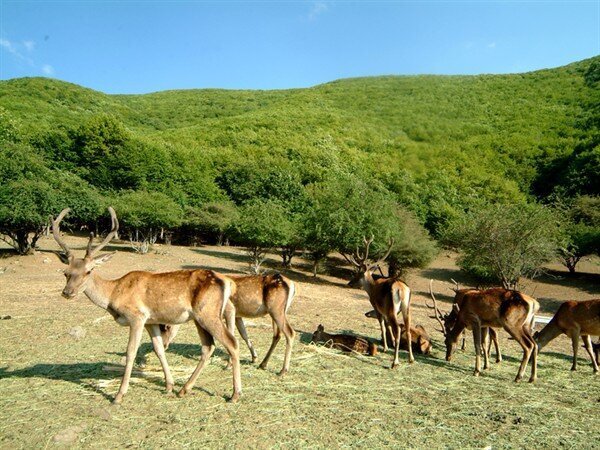Ardabil protected, hunting prohibited areas measure 500,000 hectares

TEHRAN – Some 456,000 hectares area of land in the northwestern Ardabil province are protected and hunting prohibited areas.
The provincial department of environment manages 174,000 hectares of protected areas and 282,000 hectares of hunting prohibited areas, IRNA quoted Hassan Qasempour, the director of the provincial department of the environment as saying.
Referring to the difference between protected areas and hunting prohibited areas, he said that rangers in hunting prohibited areas just prevent illegal hunting but in protected areas, they also prevent cutting trees as well, he explained.
Statistics show that the growth rate of protected areas in Iran is higher than in many countries so the number of protected sites in Iran has risen about 37 times compared with 26 times on average in the world from 1962 to 2018.
To preserve the existing biodiversity over the wide geographic expanse of Iran, four types of areas have been designated for preservation and protection, including, national parks, wildlife refuges, protected areas, and natural national monuments. In 1997, the Department of Environment (DOE) held supervision over 7,563,983 hectares of such areas.
Currently, 30 national parks, 170 protected areas, 45 wildlife refuges, and 37 national natural monuments, measuring about 19 million hectares in the area are in the country.
According to the latest studies, about 1,300 species of vertebrates, including mammals, birds, reptiles, amphibians, and aquatic fish, about 30,000 species of invertebrates, and 8,000 species of plants have been identified in the country.
Currently, 30 national parks, 170 protected areas, 45 wildlife refuges, and 37 national natural monuments, measuring about 19 million hectares are in the country.
Following the formation of the International Union for Conservation of Nature (IUCN), various world-class meetings were held between scientists, and new parks with new management emerged in different countries. In Iran, too, the issue of protection of hunting grounds changed to a more general issue, so in 1956, the Hunting Club of Iran was formed.
Later, it developed into an organization overseeing hunting and fishing activities in the country. In 1971 the organization changed its name to its current one and notably hosted the Ramsar Convention on Wetlands of International Importance in the city of Ramsar in the same year.
The Convention on Biological Diversity predicts that the average protected area in the world will reach 30 percent of the total area of a country. There is 11.6 percent of the protected areas in Iran. Therefore, the DOE introduced 29 areas with about 700,000 hectares as new areas to the Ministry of Agriculture, but there are some problems.
Of course, despite all these problems, the rate of Iran's protected areas is higher than many countries in the world, or over a 40-year period, the growth of these areas in Iran is higher than the global average, Ali Bali, deputy director of the habitats and regional affairs office of the DOE has said.
The global average for protected areas is about 15.7 percent of a country's area, although the average in countries such as Venezuela, Ecuador, Canada, India, and Nepal is above 30 to 40 percent, he noted.
From 1962 to 2018, the average number of protected areas in the world increased 26 times, compared with 37 times in Iran. Of course, this growth has been in terms of the number of protected areas, but the issue is how large this number is, he explained.
He pointed to the challenges of protected areas and said that one of the main threats to protected areas is habitat destruction, which may be done by government agencies to implement development projects, or in a more limited area by the locals.
The next challenge is mining and mining activities. We have a big challenge in this area; Mines are the most incompatible activities against protected areas, he stated, citing poaching as another challenge for protected areas.
Drought, dust, human-made, and natural hazards such as wildfires are other challenges that threaten these areas, and on the other hand, the development of villages in or around protected areas also threatens the dynamism of these areas, he concluded.
MG
Leave a Comment